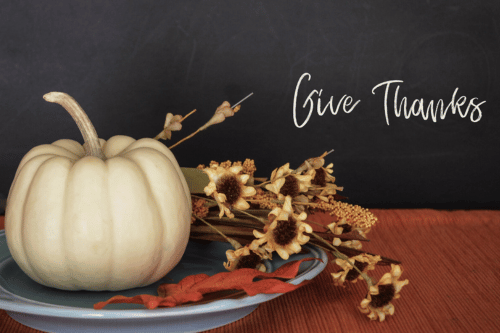Thanksgiving Depression: Understanding and Coping Strategies
Thanksgiving is often seen as a joyful time filled with celebrations, family gatherings, and abundant meals. However, for some individuals, it can trigger or exacerbate feelings of sadness and anxiety—commonly referred to as Thanksgiving depression. Understanding the factors that contribute to these feelings can help individuals take proactive steps toward managing their mental health during the holiday season.
What is Thanksgiving Holiday Blues?

Thanksgiving depression refers to heightened feelings of sadness, anxiety, and stress that emerge during or around the Thanksgiving holiday. Seasonal affective disorder, a related condition, can exacerbate Thanksgiving depression. Similar to the holiday blues, it can be driven by unrealistic expectations, loneliness, or financial pressures, leading some to struggle with their mental well-being during what is supposed to be a festive time.
Understanding the Holiday Blues
The holiday season, particularly the Thanksgiving holiday, can be a challenging time for many individuals. The pressure to spend time with family, exchange gifts, and participate in festive activities can lead to feelings of anxiety, depression, and stress. This phenomenon is often referred to as the “Holiday Blues.” According to a recent survey, 64% of people with mental illness report that the holidays make their conditions worse.
The Holiday Blues can manifest in different ways, including feelings of sadness, loneliness, and frustration. Some individuals may experience a sense of overwhelm, while others may feel pressure to put on a happy face despite their true emotions. It’s essential to recognize that the Holiday Blues are a common experience and that seeking help is a sign of strength, not weakness.
Common Causes of Thanksgiving Depression
Unrealistic Expectations and Family TensionsMany people expect perfect celebrations, only to find themselves overwhelmed by family dynamics, unresolved conflicts, or the pressure to spend time with relatives. While the idea of reconnecting with family can be uplifting, it may also bring up past feelings of disappointment or grief.
Stress and Financial PressurePlanning for large meals, exchanging gifts, or hosting gatherings can create significant stress. People often experience anxiety when trying to meet the expectations placed on them during the holiday season. In some cases, the stress of planning for Thanksgiving flows into the upcoming new year, compounding the pressure.
Loneliness and IsolationThe Thanksgiving holiday is a time for togetherness, but not everyone has the opportunity to celebrate with loved ones. For some, being unable to spend time with friends or family can amplify feelings of sadness and isolation, especially if they have recently experienced a personal loss.
Mental Health TriggersDepression, anxiety, and other mental health disorders can be aggravated by emotional triggers such as changes in routine, colder weather, or reduced social interaction. Some individuals experience a dip in mood due to disruptions in sleep patterns, poor diet, or the temptation to overindulge in alcohol. These shifts can lead to symptoms such as fatigue, sadness, and irritability. Developing coping mechanisms can help manage these triggers effectively.
Symptoms of Thanksgiving Depression

Identifying the symptoms of Thanksgiving depression and emotional distress is crucial to seeking timely support. Individuals may experience:
Persistent sadness and loss of interest in activities.
Anxiety about gatherings or holiday-related events.
Changes in appetite, either overeating or loss of appetite.
Fatigue, headaches, or trouble sleeping.
Social withdrawal or feeling overwhelmed in social situations.
Suicidal thoughts in severe cases, highlighting the need for immediate professional help.
Building a Support Network
Building a support network is crucial for managing the Holiday Blues. Surrounding yourself with loved ones, friends, and mental health professionals can provide a sense of comfort and security. Here are some tips for building a support network:
Reach out to friends and family members who understand and support you.
Consider joining a support group or online community to connect with others who share similar experiences.
Prioritize self-care activities, such as exercise, meditation, or hobbies, to help manage stress and anxiety.
Seek professional help from a mental health counselor or therapist who can provide guidance and support.
Don’t be afraid to ask for help when you need it – whether it’s a listening ear or assistance with daily tasks.
By building a support network, you can better navigate the challenges of the holiday season and prioritize your mental health. Remember, you don’t have to face the Holiday Blues alone.
Coping Strategies for Thanksgiving Depression

Practice Self-Care and Set BoundariesPrioritizing self-care can help alleviate some of the stress during Thanksgiving. Taking breaks, engaging in activities that promote relaxation, and saying no to events that feel overwhelming can make the season more manageable. Incorporating mindfulness practices can also promote relaxation and reduce stress.
Stay Connected with Loved OnesIf spending the holiday with family isn’t possible, consider making plans with friends or participating in community activities to build a support system. Even a simple phone call can foster a sense of connection and reduce feelings of isolation.
Limit Alcohol ConsumptionAlcohol can worsen depression and anxiety, leading to emotional lows. Setting boundaries around drinking and focusing on healthy habits can help maintain emotional stability during the season.
Focus on GratitudeShifting your focus to what you are thankful for can foster positive emotions. Some people find that keeping a gratitude journal or expressing their appreciation to others can improve their mood.
Seek Professional Help if NeededFor individuals experiencing severe symptoms or suicidal thoughts, reaching out to mental health professionals is essential. Early intervention can prevent Thanksgiving depression from escalating into a more serious condition.
Preventing Thanksgiving Depression: Proactive Tips
Plan Ahead: Creating a schedule can reduce last-minute stress. Planning ahead can also build emotional resilience.
Set Realistic Expectations: Accepting that not everything will go perfectly can alleviate pressure.
Stay Active: Physical activities such as taking a walk can improve mental well-being.
Talk to a Trusted Person: Sharing feelings with a supportive friend or therapist can help.
Conclusion
While Thanksgiving is meant to be a time of joy and gratitude, it can also bring emotional challenges for some people. Recognizing the symptoms of Thanksgiving depression and taking steps to manage stress, anxiety, and loneliness can help individuals navigate the holiday season with greater ease. For those struggling, resources and professional help are available to ensure mental well-being remains a priority.
If you or someone you know is experiencing severe symptoms, please seek immediate support from a mental health provider. Remember, you are not alone, and there are ways to cope and find joy in the spirit of the season with the help of emotional support.





